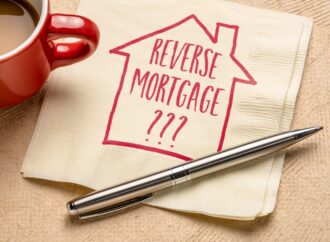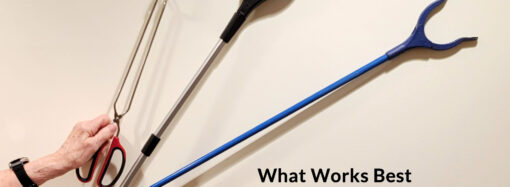Reverse mortgages are a popular financial tool available to seniors who are looking to tap into their home equity without having to sell their homes. They allow homeowners aged 62 and older to borrow against the value of their homes, providing them with a source of retirement income.
For many seniors, their home is their most valuable asset. So having a way to tap into this equity may provide needed financial flexibility.
Although the benefits of reverse mortgages sound appealing (especially when they are hyped in TV ads), there are drawbacks you need to know about and understand before taking out a reverse mortgage.
Here’s what you need to know about this special type of mortgage:
What is a Reverse Mortgage?
A reverse mortgage is a special type of loan for homeowners who are at least 62 years old. The most common type of reverse mortgage is called a Home Equity Conversion Mortgages (HECM). These are insured by the Federal Housing Authority (FHA).
The reason a reverse mortgage is attractive to some seniors is that it lets you convert part of your home equity into cash without having to sell your home or make regular monthly mortgage payments.
Instead of you paying the bank every month, the bank pays you. Depending on the terms of your agreement, you either get the cash as a lump sum, or have the money paid to you monthly, or have a line of credit you can tap into as needed.
This borrowed money can supplement your retirement income or help cover unexpected expenses such as healthcare costs, home repairs or modifications, or just help you maintain your standard of living.
But it’s not free money.
The bank gets its money back, plus accumulated interest and fees, when you sell the home, it’s no longer your principal place of residence, or you die.
Reverse Mortgage Balances Increase Monthly
All the money the bank “gives” you is a loan based on the equity in your home. Like any loan, you have to pay off the balance, fees and interest.
But unlike a traditional mortgage, you don’t make monthly mortgage payments on your reverse mortgage loan, so you aren’t reducing the loan balance month by month.
Instead, interest and fees for the loan are added to the loan balance each month, so the amount you owe on the reverse mortgage keeps going up.
How Does a Reverse Mortgage Work?
Here’s a breakdown of the way reverse mortgages generally work:
- Eligibility: To qualify, you must be at least 62 years old, own your home outright or have a low mortgage balance, and live in the home as your primary residence.
- Loan Proceeds: Instead of making monthly payments to a lender, like you do with a standard mortgage, the lender pays you in a reverse mortgage. You can choose how to receive these payments, whether as a lump sum, regular monthly payments, or a line of credit that you can tap into as needed.
- Loan Repayment: The loan doesn’t have to be repaid until the last surviving borrower moves out of the home permanently, sells the home, or passes away. At that point, the home is usually sold, and the proceeds from the sale are used to repay the loan, including the principal and accrued interest. If the home sells for more than the money owed, your heirs will get what’s left after the lender is paid.
- Fees and Costs: Reverse mortgages come with fees and costs, similar to traditional mortgages. These can include origination fees, closing costs, mortgage insurance premiums, and servicing fees. It’s important to understand these costs and how they impact the amount of money you receive.
- Mandatory Counseling: Because of the complexity and long-term implications of a reverse mortgage, counseling with a HUD-approved counselor is required for FHA-insured reverse mortgages. This ensures that you fully understand the product and can assess whether it aligns with your financial goals.
- Upkeep and Taxes: With a reverse mortgage loan, you are required to pay property taxes and homeowners insurance, use the property as your principal residence, and keep your house in good condition.
- Heirs: If your heirs want to keep the home instead of selling it, they’ll have to repay the reverse mortgage balance themselves, either through refinancing or other means.
Benefits of Reverse Mortgages
Reverse mortgages offer several benefits, particularly for seniors with limited, fixed incomes who want to age in place and remain in their homes for as long as possible. These loans:
- Let seniors tap into the equity in their home without having to sell it and move out.
- Provide a nontaxable source of funds for seniors with limited income but a lot of equity in their home.
- Allow some seniors to continue living in their home, when they might not otherwise been able to do so.
- Free up cash flow since there are no monthly payments to make on the reverse mortgage.
- Can help seniors cover healthcare costs or unexpected expenses.
- Are usually non-recourse loans, so borrowers or their heirs won’t be have a huge debt if the value of the house drops and won’t cover the cost of the loan.
Risks and Disadvantages of a Reverse Mortgage
Although the prospect of receiving money without having to pay monthly loan installments seems appealing, there are some important risks and drawbacks to consider before choosing a reverse home mortgage. Here are some disadvantages of these loans:
- A reverse mortgage increases your debt and can use up your equity. The reduction in equity reduces the inheritance you leave your heirs.
- Your debt keeps going up (and your equity keeps going down) because interest is added to your balance every month. This can use up much – or even all ─ of your equity.
- A reverse mortgage can be an expensive way to borrow. The fees and interest can be higher than other alternatives.
- If you want to move elsewhere (say, to be nearer family), the balance on the reverse mortgage has to be paid off when you move out of the house that has the reverse mortgage. That can leave you little money to buy or live in a new residence.
For example, if the house sells for $400,000 and the balance on the reverse mortgage is $350,000, all you’ll get is $50,000. If you needed to move into assisted living, that amount won’t even cover the average cost of assisted living for one year for one person. - The income from the reverse mortgage may affect eligibility for Medicaid and Supplemental Security Income (SSI) (but it won’t affect regular Social Security and Medicare).
- Reverse mortgages require you to maintain the home. You must keep up with property taxes, insurance, and maintenance. Depending on where you live and the size of your home, those costs could amount to $15,000 to $20,000 a year or more.
Who Might Benefit from a Reverse Mortgage?
The cost and financial impact of reverse mortgages can be significant. But a reverse mortgage may be beneficial if:
- A senior wants to stay in their home but needs funds for home modifications or healthcare.
- There is no intention to leave the home as an inheritance.
- The homeowner doesn’t have income sources or savings.
- They will be able to maintain the home and pay the taxes.
Shopping for A Reverse Mortgage Loan
Don’t rush into taking out a reverse mortgage. Learn as much as you can in advance and pay attention to these 7 tips:
- Shop around. Origination fees, interest rates, closing costs, and servicing fees — vary, so compare options, terms, and fees from various lenders.
- Don’t let anyone pressure you into making a decision. If you do feel pressured, walk away.
- Confirm all upfront costs and compare them to other loan options. Some traditional home loans may cost less than reverse mortgages for upfront expenses, like closing costs and origination fees.
- Know whether the offer is for a fixed or a variable interest rate. (A variable rate mortgage is one where the rate changes with the market. If interest rates go up, the interest you pay goes up.) Most reverse mortgages have variable rates but give you more options on how you get your money.
- Don’t let salespeople talk you into using your reverse mortgage money to buy investments, insurance or other financial products. You could wind up losing the money you’re borrowing that way.
- Before you agree to a reverse mortgage, check to be sure it has what’s called a “non-recourse” clause. It means that you, or your estate, can’t owe more than the value of your home when the loan becomes due and the home is sold
- Before turning to a reverse mortgage to pay for home repairs or improvements, consider and compare other options. Home equity loans, home equity lines of credit, or refinancing your current home mortgage may be a less costly way to pay for needed repairs and improvements.
Seek Professional Advice
Anyone considering a reverse mortgage needs to thoroughly familiarize themselves with how they work and what their financial impact will be long term. Be sure to consider all your options and understand all terms before proceeding.
In addition to HUD counselors, discuss the pros and cons of reverse mortgages with your family and with your attorney or a trusted financial advisor.
FAQS About Reverse Mortgage Home Equity Conversion Loans
What is Home Equity?
Your home equity is how much money you’d get for your home if you sold it at current market value, minus the balance of any mortgage you have on that home.
Are There Reverse Mortgages that Aren’t FHA Insured?
Yes. Private lenders offer proprietary reverse mortgages. They may have a higher interest rate. In some cases, they may let you borrow more, but your debt will increase and may use up all your equity In addition. They are not as tightly regulated as the FHA-insured Home Equity Conversion Mortgages (HECM)
What Happens If Your Home Value Decreases?
If the reverse mortgage is a nonrecourse loan, the borrower and their heirs won’t be responsible for paying the difference if the sale price of the house is less than the outstanding loan when you die or move out. (Most reverse mortgages are non-recourse loans.)
What Happens if You Use Up All the Equity and are Still Alive?
As long as the borrower maintains the home and continues living there, they can stay even if the loan balance exceeds home value. If they move out permanently or sell the home, the loan has to be repaid. But with a non-recourse loan they won’t owe more than the amount the house sells for.
What Happens When There is a Coborrower?
If you have a coborrower who stays in the house after you pass away or move out, they can stay in the home and receive loan disbursements as long as they continue to meet the requirements of the agreement.
Where Can I Learn More?
Here are several U.S. government sources of information about reverse mortgage home equity loans:
U.S. Department of Housing and Urban Development (HUD)
Consumer Financial Protection Bureau
U.S. Federal Trade Commission (FTC)
Disclaimer: The information on this website is provided for informational purposes only and should not be considered legal, tax, accounting, or medical advice. Please consult a licensed professional for help with any specific questions and issues you may have.
Image source: Istockphoto














Leave a Comment
Your email address will not be published. Required fields are marked with *